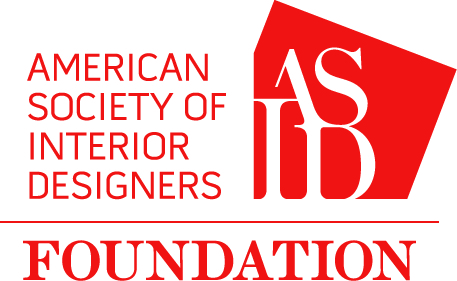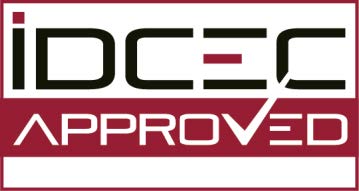
Personalized Learning, Personalized Space: Design Implications for Personalized Learning
- Registration Closed
Explore what personalized learning means to students and teachers, and learn practical design guidelines to create environments for personalized learning.
Continuing Education Approvals
- 1 IDCEC CEU | CC-107925 (Your CEU will be reported to IDCEC on your behalf)
- IDCEC approval expires 11/30/24. Please complete the course before then to receive IDCEC credit.
Supported by

Description
Personalized learning promotes students’ greater autonomy by offering individualized curricula based on capabilities and interests, enhancing academic achievement. Explore what personalized learning means to students and teachers, and review the efficacy of a recent school renovation designed to implement personalized learning, including the development and pilot testing of an experimental sensory design lab. You will walk away with practical design guidelines you can implement to create environments for personalized learning. Development of the sensory design lab was funded by the ASID Foundation Transform Grant.
What You Will Learn
- Define personalized learning and how it is related to the built environment.
- Identify common challenges related to learning-environment design.
- How to address potential challenges in school design when adopting personalized learning paradigm.
- Articulate design implications for personalized learning.
Access period: One year from registration date.
Upali Nanda, Ph.D., Assoc. AIA, EDAC, ACHE
Principal and Director of Research, HKS, Inc.
Assoc. Prof of Practice, Taubman College of Architecture and Urban Planning, University of Michigan
Dr. Upali Nanda is Principal and Director of Research for global architectural firm HKS, where she spearheads research projects globally. She also serves as Executive Director for the non-profit Center for Advanced Design Research and Education and teaches as Associate Professor of Practice at the Taubman College of Architecture and Urban Planning at University of Michigan. She serves on the board of directors for HKS and the Academy of Neuroscience for Architecture. Her doctoral work on “Sensthetics” has been published as a book available on Amazon.com. Her award-winning research has been widely published and cited in peer-reviewed journals and mainstream media. In 2015, Upali was recognized as one of the top 10 most influential people in Healthcare Design by Healthcare Design magazine. In 2018, she was honored by Architectural Record with the Women in Architecture Innovator Award. In 2019, she was recognized as one of nine people shaping American design by Specify Magazine from Metropolis.
Giyoung Park, PhD, AIA
Senior Design Researcher, HKS, Inc.
Dr. Giyoung Park currently serves as a Senior Design Researcher at HKS Architects. Dr. Park is an environmental psychologist and registered architect. She has earned an M.Arch. degree from the University of Michigan and an M.S. in Human-Environment Relations and a PhD in Human Behavior and Design degrees from Cornell University. Her research interests include environmental stress, social interaction, social capital, communication technologies and human wellbeing in relation to the built environment.
Angela Ramer
Design Anthropologist, HKS, Inc.
Angela Ramer is design anthropologist at HKS Architects. She earned her M.S. in Applied Anthropology from The University of North and a B.A. in Anthropology from Elon University. Angela’s interests in business, technology and design relate to her current work in both organizational performance and design for corporate offices, educational environments, campus planning, sports and entertainment, and urban planning projects. Her user-centered, ethnographic perspective highlights for design team and clients alike the need to understand the breadth of human experience that occurs within and around built environments.
Ashley Flores
Education Strategist, HKS, Inc.
Ashley Flores is the Education Strategist at HKS, a global architecture and design firm. She leverages her experience as teacher, district administrator, and planner to advance teaching and learning through the built environment. Prior to HKS, Ashley served as Director of Planning and Special Projects at the Dallas Independent School District and led the development and early implementation of the district's personalized learning initiative, a model for spurring innovation in a large urban district. She earned a Bachelor of Business Administration in the Business Honors Program and a Bachelor of Arts in the Plan II Honors Program at The University of Texas at Austin as well as a Master of Education in Education Policy and Management at the Harvard Graduate School of Education.

This CEU is registered with the International Design Continuing Education Council (IDCEC) for continuing education credits. This credit will be accepted by the American Society of Interior Designers (ASID), International Interior Designers Association (IIDA) and Interior Designers of Canada (IDC).
The content included is not deemed or construed to be an approval or endorsement by IDCEC of any material or construction or any method or manner of handling, using distributing or dealing in any material or product.
Questions related to specific materials, methods and services should be directed to the instructor and provider of the CEU.
This program is registered for 1 CEU value. The IDCEC class-code is: CC-107925R2.
